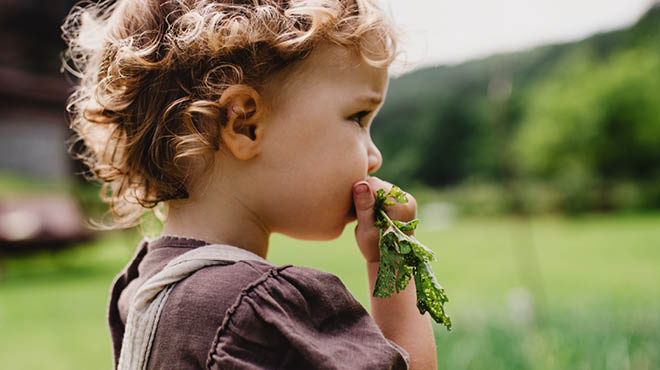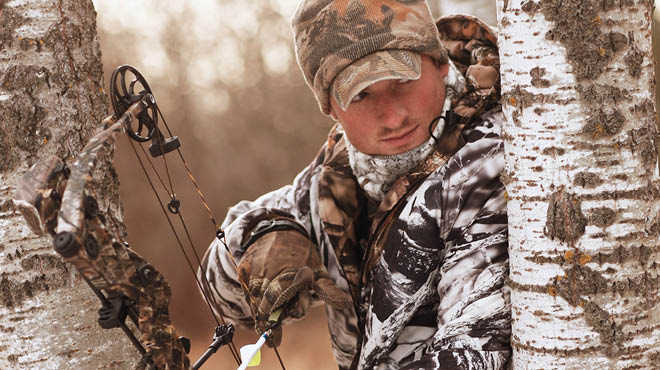Smart decisions improve your winter health

Winter is beautiful, but it can be treacherous. The cold, ice and snow add complexities to our lives — and potentially our health. Many things can happen during the season that cause people to end up in the emergency department. Here is some advice to keep you healthy and safe.
Be prepared in cold weather
Arctic-like temperatures can be dangerous to many, especially the young and the elderly.
Take these precautions to ensure you and your family are safe:
- Avoid lengthy exposure to cold weather.
- Dress in several layers of clothing.
- Pay special attention to protecting your feet, hands, head, ears and nose from extremely low temperatures.
- Stay well-hydrated if you're going to spend any length of time in the cold outdoors.
- Skip tight clothing.
Watch out for signs of frostbite
Frostbite is a serious condition. The first step in preventing frostbite is to know when you're most at risk. Your risk is higher if you smoke, have a blood vessel disease like diabetes, aren't wearing proper clothing, are dehydrated or tired and if you're at a higher altitude.
Once you understand your risk, take these measures to prevent frostbite:
- Limit your time outdoors in cold, wet or windy weather.
In cold, windy weather, exposed skin can develop frostbite in minutes. - Dress in several layers of loose, warm clothing.
Air trapped between the layers of clothing acts as insulation against the cold. - Wear a hat or headband that fully covers your ears.
Heavy wool or windproof materials make the best headwear for cold protection. - Wear mittens rather than gloves.
Mittens provide better warmth for your fingers. - Plan to protect yourself.
When traveling in cold weather, carry emergency supplies and warm clothing in case you become stranded. If you're traveling in remote territory, tell others your route and expected return date.
Be aware of carbon monoxide poisoning
Carbon monoxide is an odorless, colorless gas produced by burning gasoline, wood, propane, charcoal or other fuel. Carbon monoxide poisoning happens when the gas builds up in your bloodstream. More than 100,000 people go to an emergency department and more than 400 people die due to accidental carbon monoxide poisoning each year, according to the Centers for Disease Control and Prevention (CDC). This occurs more often during the winter because people burn fuel for heat and often are in closed spaces.
Here are some simple things that you can do to prevent carbon monoxide poisoning:
- Install a carbon monoxide detector.
If the alarm sounds, leave your house and call 911 immediately. Don't forget to check the batteries in your carbon monoxide detector every time you check batteries in your smoke detectors ― at least twice a year. - Open the garage door before starting your car.
Never leave your car running in the garage because carbon monoxide gas can quickly build to dangerous levels. - Keep your furnace and other fuel-burning appliances properly vented and serviced.
This includes water heaters, cooking ranges, fireplaces, space heaters and charcoal grills. Don't bring outdoor fuel-burning heaters or grills inside. - If you have a fireplace, keep it in good repair.
Clean your fireplace chimney and flue every year.
Avoid slips and falls
Fall-related injuries accounted for more than 6.9 million emergency department visits in 2021, according to the National Safety Council.
Here are some tips for preventing slips and falls:
- Wear the right shoes.
Properly fitted shoes increase comfort, reduce fatigue and improve safety. - Take your time.
If you notice that the floor or ground doesn't have much traction, walk slowly and be careful with each step. - Walk safely.
Move slowly and try shuffling to prevent slips, trips and falls. - Stay aware.
Watch out for uneven ground, protruding structures, holes and debris that can cause slips, trips and falls. Also, be aware of ice- and snow-packed surfaces that increase the risk of falling. - Be cautious when exiting your vehicle.
Parking lots are often snow-packed and icy. Hold on to the door while getting out of your vehicle.
Staying healthy is important at all times of the year, and winter is no exception. Keep these tips in mind as you enjoy winter.
In this Mayo Clinic Radio interview video, I share additional tips for avoiding winter hazards:
Learn more about winter safety:
- Get tips for safe snow shoveling.
- Learn how to avoid winter slips and falls.
- Remember 10 essentials to pack for your outdoor winter adventure.
Susan Cullinan, M.D., is an Emergency Medicine physician in Barron, Bloomer, Eau Claire, Menomonie and Osseo, Wisconsin.



